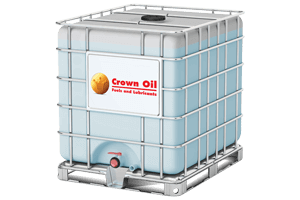What is AdBlue®?
AdBlue®, the common term for NOx reduction agent AUS 32 Diesel Engine Fluid (DEF), is a necessary fluid for all modern diesel engines that neutralises pollutants released from diesel fuel combustion. The name AdBlue® is a trademarked term held by the German Association of the Automobile Industry (VDA (Verband der Automobilindustrie))
As a UK-leading AdBlue® supplier, our experts have rounded up everything there is to know about the diesel engine fluid to ensure you are using it correctly. If you still have questions after reading this guide, just give us call on 0330 123 1444.
What does AdBlue® do?
Since 2015, AdBlue® is required by law for use in modern diesel engines to reduce harmful nitrous oxide (NOx) emissions that cause acid rain.
What is AdBlue® made from?
The liquid is made up of a mixture of urea and deionised water that’s sprayed into the exhaust system
There are two ways of achieving a reduction in NOx that forms from the combustion of diesel fuel: through a Selective Catalytic Reduction (SCR) system and through exhaust gas recirculation. If your vehicle uses the SCR system, then you’ll need AdBlue®.
What emission regulation mandates AdBlue®?
From September 2015, all diesel vehicles registered in EU member states must meet Euro 6 emission standards which aim to reduce the nitrogen oxide emissions produced. AdBlue® is a legal requirement in diesel vehicles manufactured after this date to ensure they meet these standards.
How long does AdBlue® last? How much AdBlue® do I need?
As AdBlue® is an exhaust additive, it’s used at a much slower rate than your fuel so it lasts a lot longer than the diesel in your fuel tank – around a rate of 5% AdBlue® to diesel fuel is a rule of thumb worth following.
As a guide, the below table illustrates how much AdBlue® fluid you can expect to use for various vehicle sizes that consume different amounts of diesel per week. This should help you calculate how long your AdBlue® fluid will last.
| Diesel consumption per week | Estimated weekly AdBlue® consumption of each vehicle size in litres | ||
| (Litres) | Light (<18 tonnes) | Medium (18-35 tonnes) | Heavy (35+ tonnes) |
| 1000 | 30 | 50 | 60 |
| 2500 | 75 | 125 | 150 |
| 5000 | 150 | 250 | 300 |
| 7500 | 225 | 375 | 450 |
| 10000 | 300 | 500 | 600 |
| 15000 | 450 | 750 | 900 |
| 20000 | 600 | 1000 | 1200 |
| 25000 | 750 | 1250 | 1500 |
| 35000 | 1050 | 1750 | 2100 |
| 50000 | 1500 | 2500 | 3000 |
How does AdBlue® work?
In order to work in an engine, AdBlue® is filled into a designated tank on the vehicle with its own gauge and sensor system. The fluid is used in the Selective Catalytic Reduction (SCR) system where it’s sprayed onto the exhaust fumes soon after combustion and works by catalysing the breakdown of nitrous oxides into harmless nitrogen gas and water.
How does the Selective Catalytic Reduction (SCR) system work?
Diesel combusts within an engine, and as it does this, it is forced through the exhaust system and expelled out into the air that we breathe. Because petroleum products have trace impurities such as sulphur and nitrogen that occur in crude oil and are still present after it is refined, the high pressure and temperature of the engine allows for the formation of NOx particles.
With the application of AdBlue®, before these harmful gas emissions are released when the engine fluid formula is sprayed onto the gases and the SCR Catalyst breaks down the emissions.
Once that’s done, all that’s left is nitrogen, water and CO2 to be expelled from the exhaust system. The diagram below shows AdBlue®’s nitrous oxide reduction in action.

AdBlue® Frequently Asked Questions
As a UK leading AdBlue® supplier, we’ve comprised the most common questions that we’re asked regarding its day to day use.
I’ve put diesel in my AdBlue® tank – what do I do now?
It’s actually quite difficult to put diesel in your AdBlue® tank as the receptacle is smaller than the diesel pump.
However, if this has happened, it’s important to call a road assistance company for help to avoid potential damage to your engine. Your car insurance may cover this, but this depends entirely on your cover.
I’ve put AdBlue® in my diesel tank – what do I do now?
Some drivers may mistake AdBlue® for a fuel additive (not an exhaust fluid) and accidentally pour it into the fuel tank. If this happens, do not start the engine as it can damage the engine. Instead, call roadside assistance as soon as possible to avoid irreversible and expensive damage.
Can I put water in my AdBlue® tank?
Putting water in your AdBlue® tank is actually illegal and can damage your diesel engine, costing you thousands of pounds to repair. Your SCR system is designed to run on AdBlue® which is made up of a mix of around 67% water and 32% synthetic urea, and using neat water will invalidate your warranty
What happens if I run out of AdBlue®?
Running out of AdBlue® won’t cause engine damage, but some vehicles won’t turn on if the tank is empty.
What happens if AdBlue® freezes?
AdBlue® is water-based and freezes at -11°C, so will unlikely freeze in UK temperatures. What’s more, the AdBlue® tank is located near to the engine so will generally be surrounded by warm air and will therefore take longer to freeze. In the event of your AdBlue® freezing, this won’t damage the fluid and once, thawed it’s safe to use and will return to its former state.
How should AdBlue® be stored?
AdBlue® must be stored in a cool and well-ventilated container or specialised AdBlue® tank. The fluid must be kept out of direct sunlight, at an ideal temperature between -11℃ and 30℃.
Under these conditions, AdBlue® can be stored for around 12 months before it begins to degrade.
Does AdBlue® need any special handling?
AdBlue® requires special handling, especially in large quantities. Please speak to our advisers for advice on storage and dispensing equipment that aids safe handling.
Physical and Chemical Properties of AdBlue®
In order to be used in diesel engines, AdBlue® must meet the ISO 22241 specifications. It’s a colourless liquid with a slight ammonia odour that freezes at -11°C and boils at 100°C.
In terms of chemical properties, AdBlue® is alkaline, with a pH between 9 and 10 and has a density of 1.088g/cm3. AdBlue® that meets specifications for use in diesel engines must have a water solubility of 100g/litre and a urea content of between 31.8% and 33.2%.
To learn more about the properties that BS 22241 diesel engine fluid must meet, you can view the specifications here.
How much AdBlue® can I buy from Crown Oil?
Our AdBlue® is available in 10-litre, 210-litre, 1,000-litre packs; and for larger amounts our tankers can supply bulk deliveries up to 25,000-litres, so we’re able to supply as much as you need for your usage.
AdBlue® for different applications
When it comes to different applications, the AdBlue® available varies slightly to give you the best use. There are five grades of AUS 32 diesel engine fluid within the ISO 22241 that deal with these applications.
ISO 22241-1
BS ISO 22241-1:2019 refers to the general quality requirements of AdBlue® – fleet operators need to ensure their AdBlue meets 22241-1 standards.
ISO 22241-2
BS ISO 22241-2:2006 refers to the testing methods for AUS 32 diesel engine fluid.
ISO 22241-3
BS ISO 22241-3:2017 deals with how to handle, store and transport AUS 32 diesel engine fluid.
ISO 22241-4
BS ISO 22241-4:2009 refers to refilling interfaces for hardware using AdBlue®.
ISO 22241-5
BS ISO 22241-5:2012 refers to the refilling interfaces for passenger cars.
Why use AdBlue® that meets specification?
Using the diesel engine fluid that meets specifications is essential because low-grade DEF will contain impurities that will harm the SCR system in your hardware, and result in it working ineffectively and allowing your engine to release harmful gases into the atmosphere.
Whether you’re looking to buy AdBlue® or have any further questions about it. You can call our AdBlue® experts today on 0330 123 1444 to get your questions answered and request a quote for AdBlue® based on your requirements.





